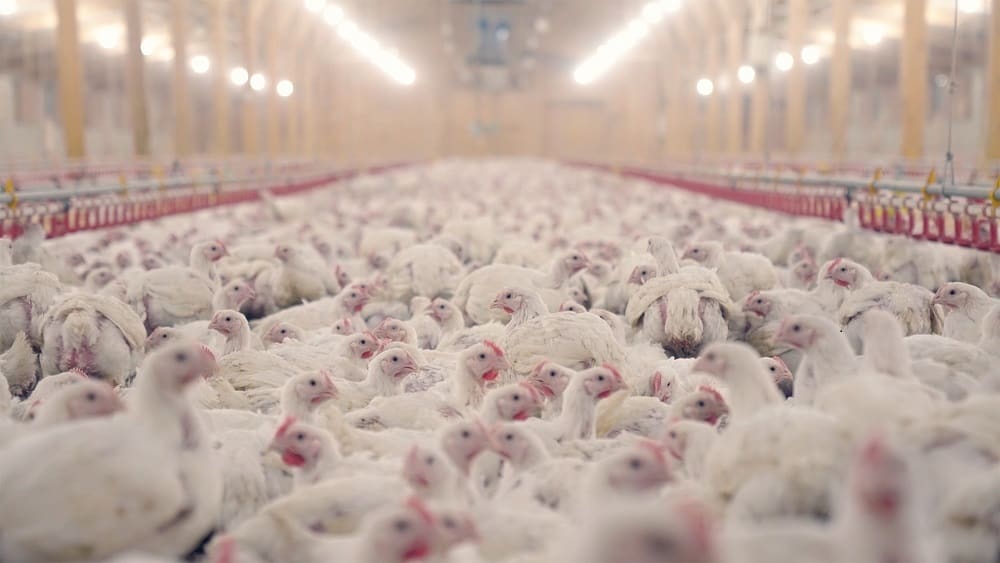Alex Crisp is a prolific writer with a background in law, education, and activism. He hosts a podcast called The Future of Food, in which he discusses the food landscape in the near and distant future with academics, business leaders, and industry influencers. He also writes articles about ethical equities, Equity Rebellion, in which he discusses investing for a sustainable future.
In this opinion piece, Alex contemplates whether cultivated meat could trigger a new level of human development.
Will Cultivated Meat Make Us Kinder?
By Alex Crisp
This is an exciting time for vegetarians and animal-loving meat-eaters, because we are at the brink of something transformational. We are perhaps now entering a new stage in our food evolution, a food revolution, in which we’ll be able to love animals and eat them too.
Cultivated meat is a type of real, edible meat created in a laboratory using animal cells. It shows clear signs of becoming a realistic alternative to meat, with hundreds of companies across the globe spending billions on R&D and building giant futuristic production sites, readying themselves for worldwide acceptance, if and when it comes. Only Singapore has so far allowed the commercial sale of lab-grown meat, but others seem to be close behind. The USA is arguably on the verge, the FDA having approved UPSIDE’s cultivated chicken last year and more recently GOOD Meat’s chicken. With all this attention and money, it can’t be long before we will all see slaughterless meat on our plates.

I was told by a scientist from the Good Food Institute that there may come a time when we can order a crocodile steak from a vending machine and have it printed off for us by a 3D printer, in minutes. We could be going into restaurants and picking out a meat type from thousands of options; zebra or koala or anything we can imagine, with no guilt or pain or shame. That may seem like an unusual thing to want to do, but the future is there to contemplate.
How significant is this for our human development? Could embracing cultivated meat cause us to stop routinely killing animals? If we do that, would we then see animals in a different light, as equals perhaps? Would it cause us to change, fundamentally, as a species? From a long history of butchering animals for just about every human utility, our development over the last 100 years or so has been significant in regard to reducing levels of cruelty; we’ve mostly stopped killing animals for light and shelter and mostly stopped killing them for clothes and warmth. Now perhaps we’re fast approaching a time when we’ll stop killing them for food too. In the context of this quick progress towards killing less, perhaps we can assume that humans would just rather not have blood on their hands, given the choice.
A world without slaughter?
If you remember as a child finding out what really happened to those farm animals colorfully illustrated in your picture books — or if you remember discovering that the Sunday dinner you were eating was, not long before, frolicking about in a field — you might remember the pain and misery it inflicted. Maybe you remember this or maybe you don’t, but if you’ve had a child in your care you will have seen their reaction to this detail of life, one which they hadn’t necessarily signed up for. It’s not a joyful moment, especially if they learned from watching granny strangle a chicken. It’s a seminal, upsetting moment, with innocence colliding with reality. Is this when a child’s memories and perhaps their instincts are formed? Before this happened in that child’s life, they probably had not thought it possible; the horror of butchering an animal and eating it may not have been conceivable to them.
The benefits of cultivated meat are huge — not least because it liberates us as a species from the necessity to kill in order to eat, which means we can start questioning what motivates us to kill at all. We can now start to imagine a world without slaughter. Despite this, however, opinions are mixed on the idea.

I’ve spoken to a number of consumers and academics over the last few months, privately and through my podcast, to gauge their level of support for the new science. Not all of it was positive; in fact, most of it was not. Some members of the public described what they thought of as a clinical, laboratory dining experience. The idea for them of cultivated meat is akin to having meat pumped from a tube onto their plate; this was a future dystopia that they would rather not contemplate.
Others feared that the world would be unrecognizable, that without the purpose of food the animals would no longer feature in our landscape. Some more extreme carnivores wouldn’t contemplate the idea that meat should not come from slaughter, maybe highlighting a small part of us all that thinks meat needs to suffer to be tasty. Then there was the most common objection of all to this futuristic meat science, which was that meat grown in a lab is unnatural.
“Marketing the new science will be a science in itself”
It wasn’t all negativity; many others were very excited by the guiltlessness of a future with meat and no slaughter, a flexitarian’s dream. Opinion is certainly divided, but then it always is, isn’t it? Marketing the new science will be a science in itself, whether it’ll be done with great fanfare or carried out so quietly that people hardly notice that their burger is no longer butchered, but grown instead. Will innovators and marketers initiate a broad education program, or would they rather not bring too much attention to it?
Part of food’s evolution?
We humans are adaptable. We adapted to growing crops rather than foraging for food. We adapted to farming animals rather than hunting. Then we adapted to factory farming to grow animals quicker and bigger and cheaper, to putting 40,000 chickens in a shed and feeding them steroids and hormones so that they grow to full size within six months, at which point their brittle legs break from supporting their weight. Then we adapted to mechanizing slaughter to save ourselves the trouble.

This is the reality of meat, and if we saw it with our own eyes we might think differently about what is or isn’t natural. Most of us have never hit a fish on the head with a rock, never broken a chicken’s neck or fired a bolt through the brain of a pig. We’ve been freed from the slaughter, but we get to eat the meat after the messy bit is over. It’s like getting to wear great jewelry after a violent armed robber has stolen it for us. So we don’t have to think too hard about what’s right or wrong in the process, we just enjoy the results. But is it still there in the back of our minds, what we learned as a child? Does it still haunt us?
Whatever your objections, it can’t be denied that there are real advantages to cultivated meat, even beyond the ethical ones. It uses far fewer resources than traditional animal farming for a start; water and land use are significantly reduced. Animal farming is a high net cause of environmental destruction and pollution, and is apparently an inefficient way of producing food. Pragmatically, cultivated meat seems like a good idea.
With the take up of cultivated meat, will the next generation be a gentler one than this? If so, will it be because we killed fewer animals for food?






